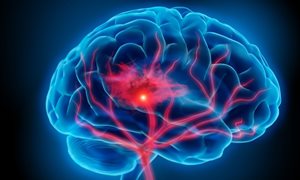 Intellectual disabilities are often caused by a mutation that damages a gene, preventing the associated protein from functioning properly. However, a mutation can also change the function of a gene. As a result, the gene in question acts in a completely different way. Researchers from Radboudumc discovered this mechanism in fifteen genes playing a role in the development of intellectual disabilities. Their research results published in the American Journal of Human Genetics on 31 August 2017 show that these changes in function play a more prominent role than previously thought.
Intellectual disabilities are often caused by a mutation that damages a gene, preventing the associated protein from functioning properly. However, a mutation can also change the function of a gene. As a result, the gene in question acts in a completely different way. Researchers from Radboudumc discovered this mechanism in fifteen genes playing a role in the development of intellectual disabilities. Their research results published in the American Journal of Human Genetics on 31 August 2017 show that these changes in function play a more prominent role than previously thought.
Change in function
In order to find out how often this mechanism is involved, researchers from Radboudumc have combined the gene mutations in Dutch patients with a large international database comprising de novo mutations in patients. This research project was led by geneticist Christian Gilissen. “With our method, we were able to detect genes in which mutations not so much eliminate as affect the gene in another way. We found fifteen genes in which mutations cluster closely together, twelve of which being associated with developmental disorders. We also found three new genes that are likely to play a role in the development of intellectual disabilities as well”, according to Gilissen.
Interactions
The de novo mutations that were found only change a very small part of a protein. The function of the protein remains largely, but not entirely the same. Gilissen says: “The mutations are more likely to affect superficial parts of the proteins. These disturb interactions with other proteins and cause problems. Although mutations eliminating genes were often thought to be the main cause of intellectual disabilities, mutations altering the function of genes are now shown to be an important factor as well. That is a surprising finding.”
Clustering mutations
Why are the de novo mutations that were found specifically clustered? Gilissen says: “There can be several explanations for that. Firstly, these genes show little natural variation. If such a gene is completely eliminated, a person may not be born. Only mutations located on very specific parts of the gene are viable. Consequently, only these mutations can be found. Another explanation can be that the mutations provide growth benefits to the sperm in which they develop. In that case, only these mutations would be able to survive.”
New possibilities
The three newly-discovered genes playing a role in the development of intellectual disabilities provide new diagnostic possibilities for patients. Gillissen says: “It is important that we have discovered a mechanism that has not yet been a focus of study. We expect this mechanism to play a role in a much larger proportion of patients with intellectual disabilities.”
-
Want to know more about these subjects? Click on the buttons below for more news.
Related news items

Take a special look inside Radboudumc on 2 October Open Day for young and old
12 September 2022On Saturday 1 and Sunday 2 October, the Radboud university medical center, Radboud University and the HAN are participating in the 'Weekend van de Wetenschap'. At all locations there are fun and interesting programs for young and old.
go to page
Dutch Research Agenda (NWA) WECOM grant from NWO for Martine Hoogman en Jeanette Mostert
5 July 2022 Martine Hoogman and Jeanette Mostert have obtained an NWA science communication grant (50k) for their ADHDplaza project. go to page
Treatment of brain diseases at risk if neuroscientists can no longer conduct their research
5 August 2021 In order to treat brain diseases such as depression, Alzheimer's or ADHD, more research into the brain is needed. go to page
Families with a child with ADHD can benefit from mindfulness training
27 May 2021Publication in Journal of Child Psychology and Psychiatry
go to page
Four Veni grants for young Radboudumc researchers
28 July 2017 Four researchers from Radboudumc have been awarded a Veni grant the Netherlands Organisation for Scientific Research (NWO). These grants provide highly promising young scientists with the opportunity to further elaborate their own ideas during a period of three years. go to page
